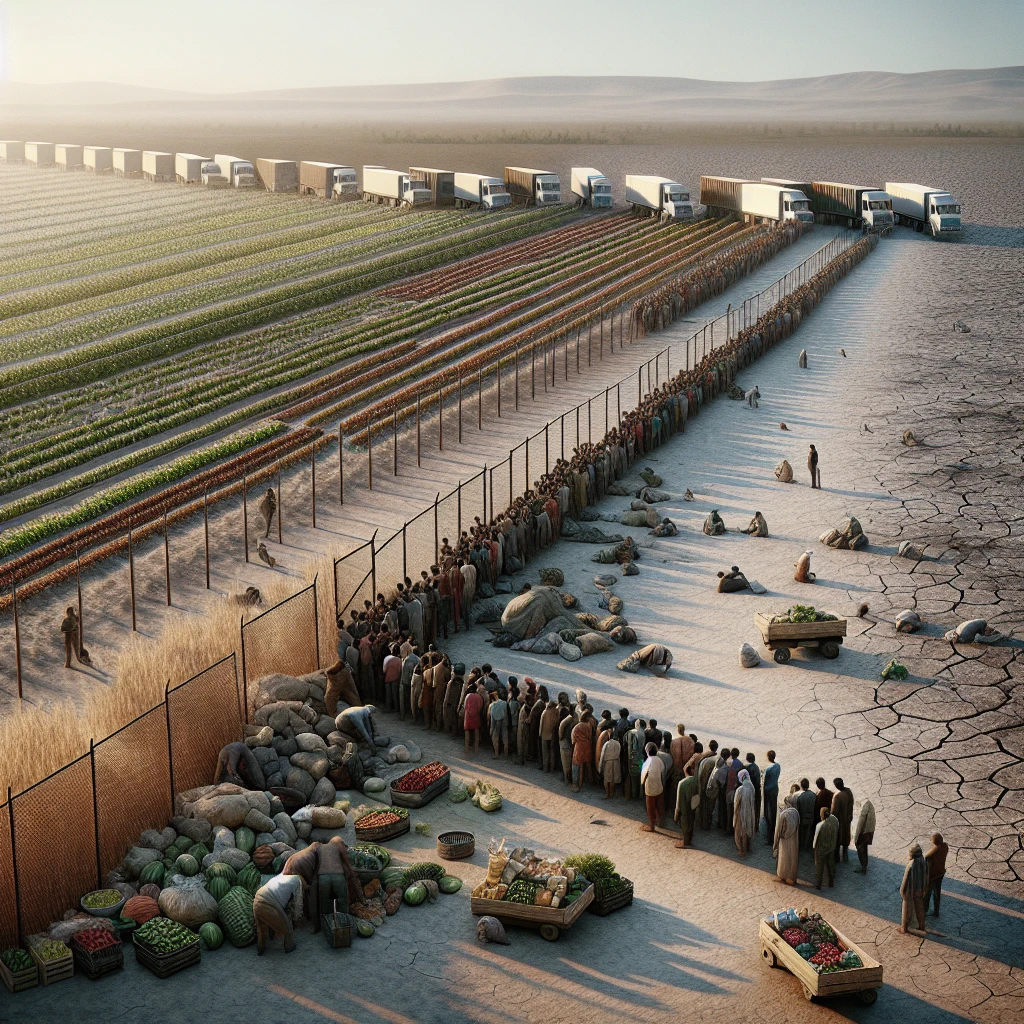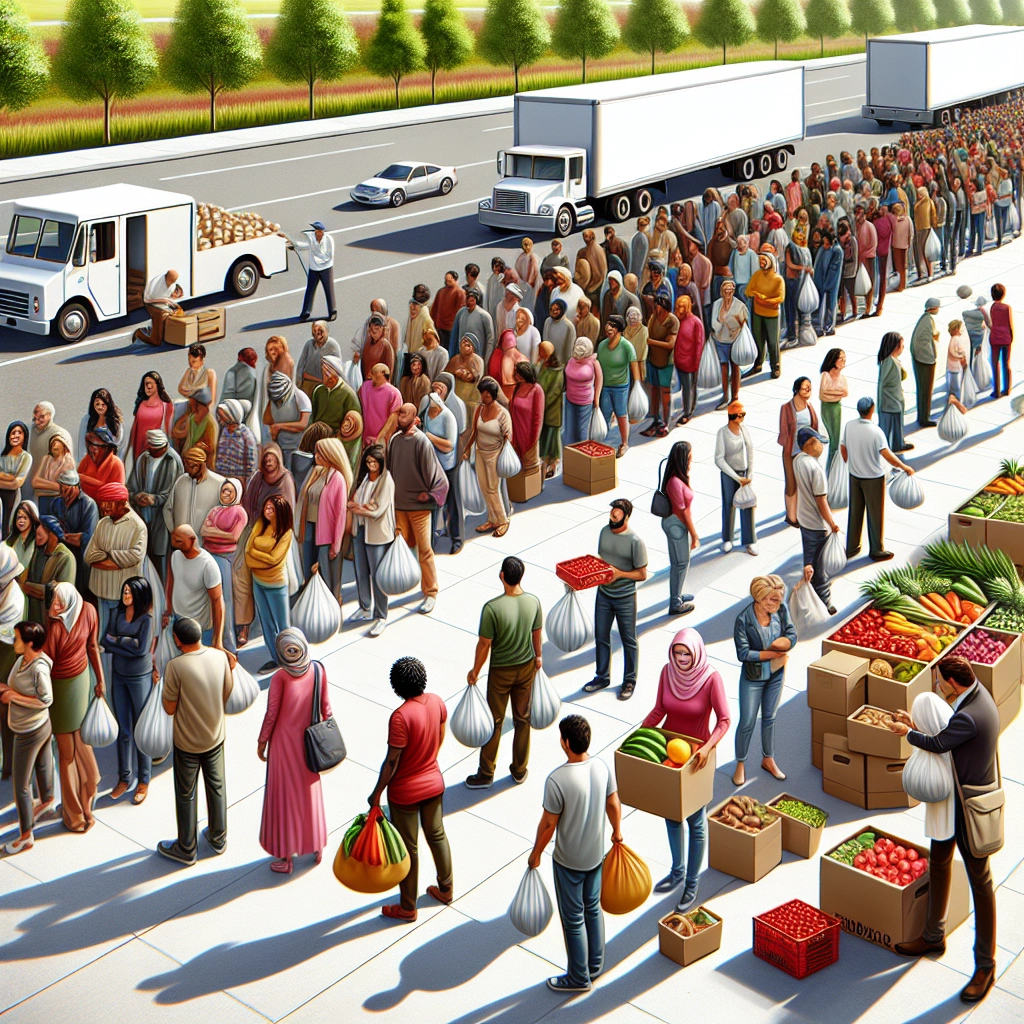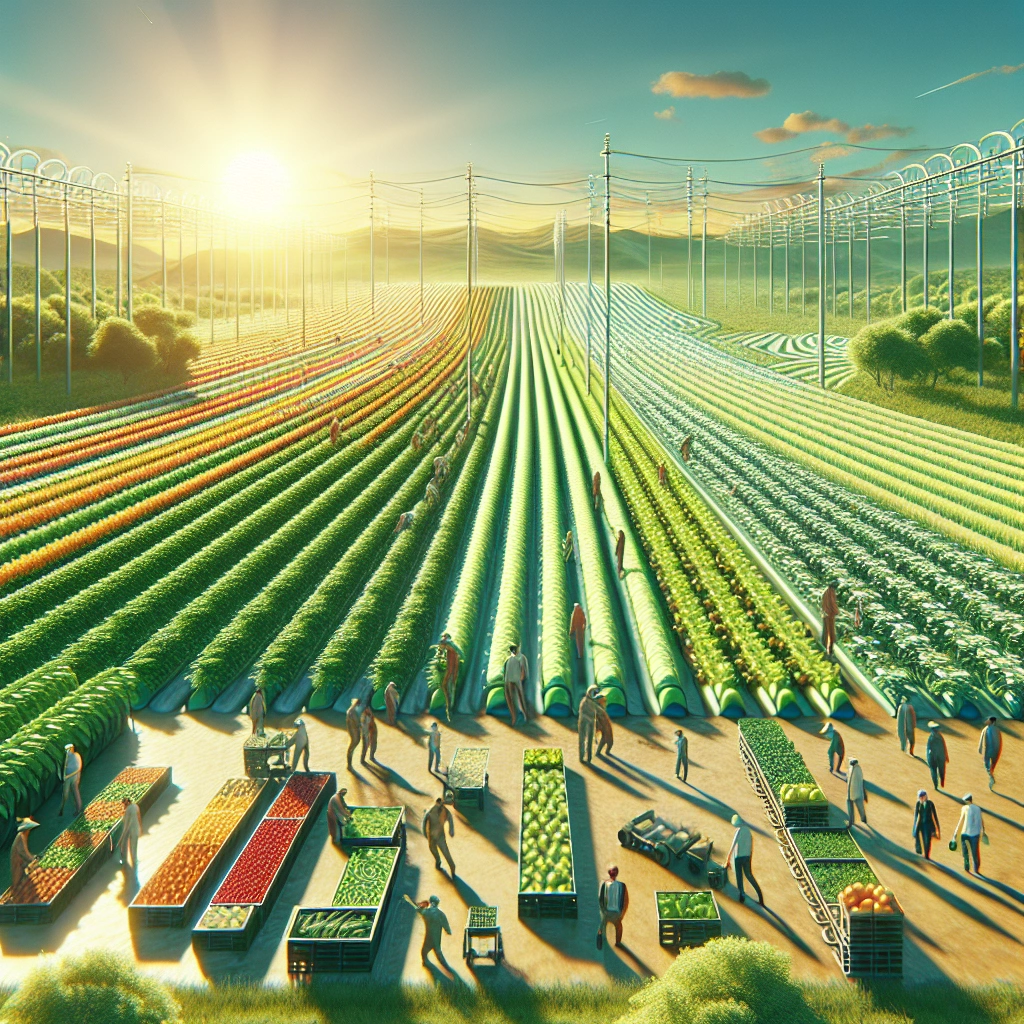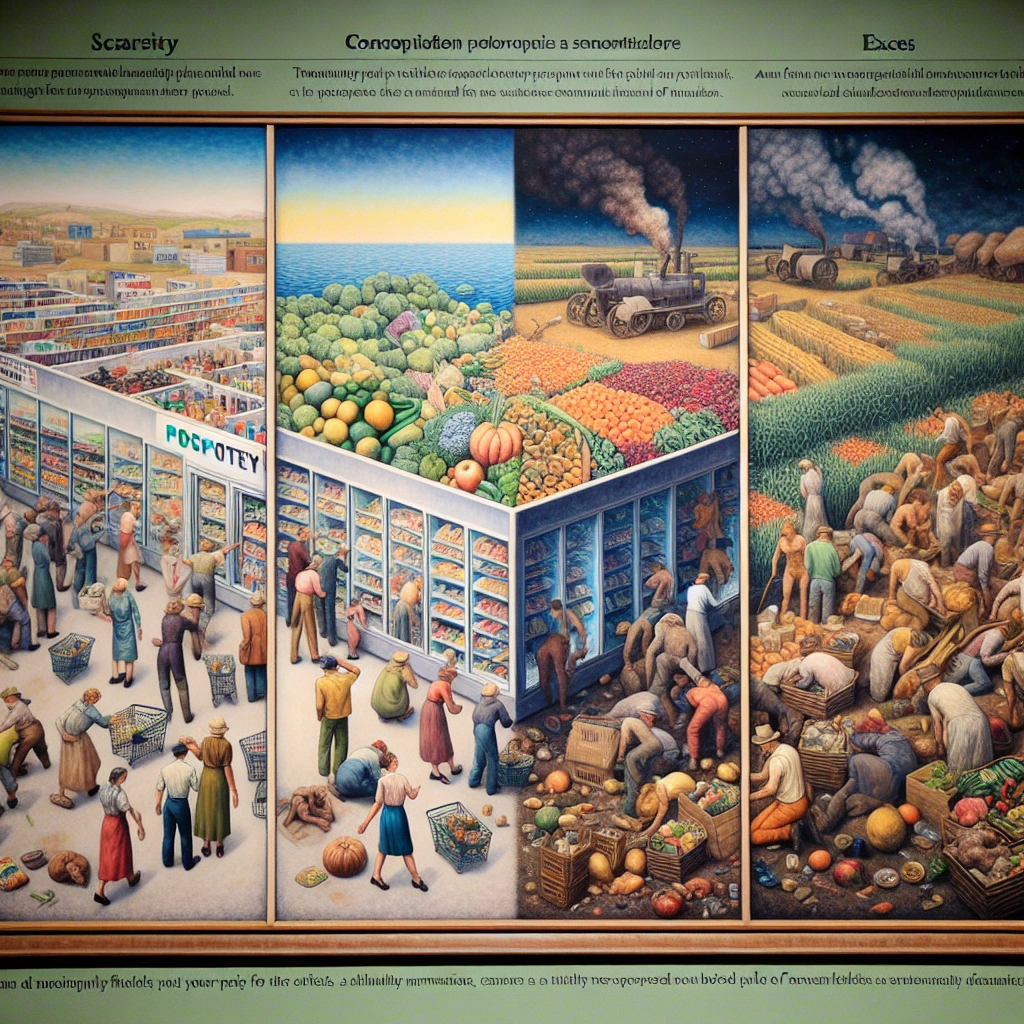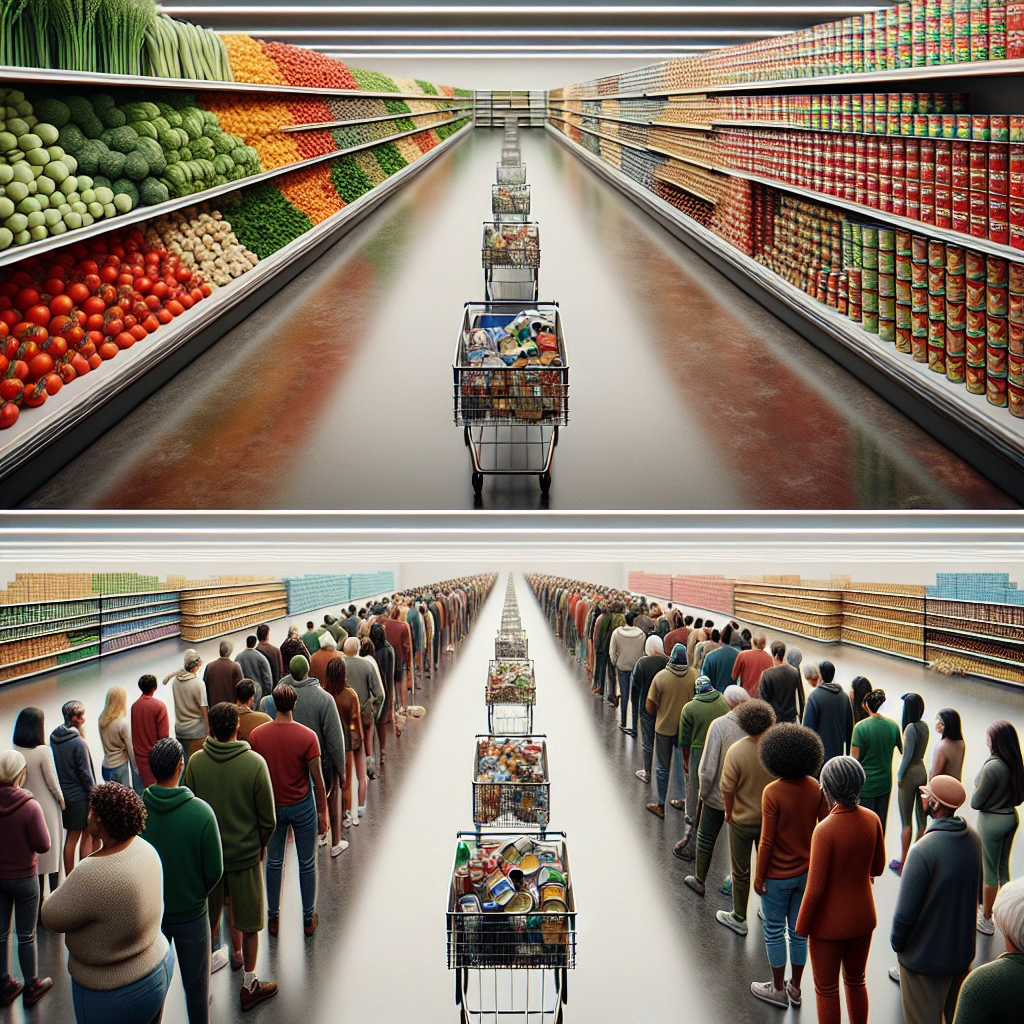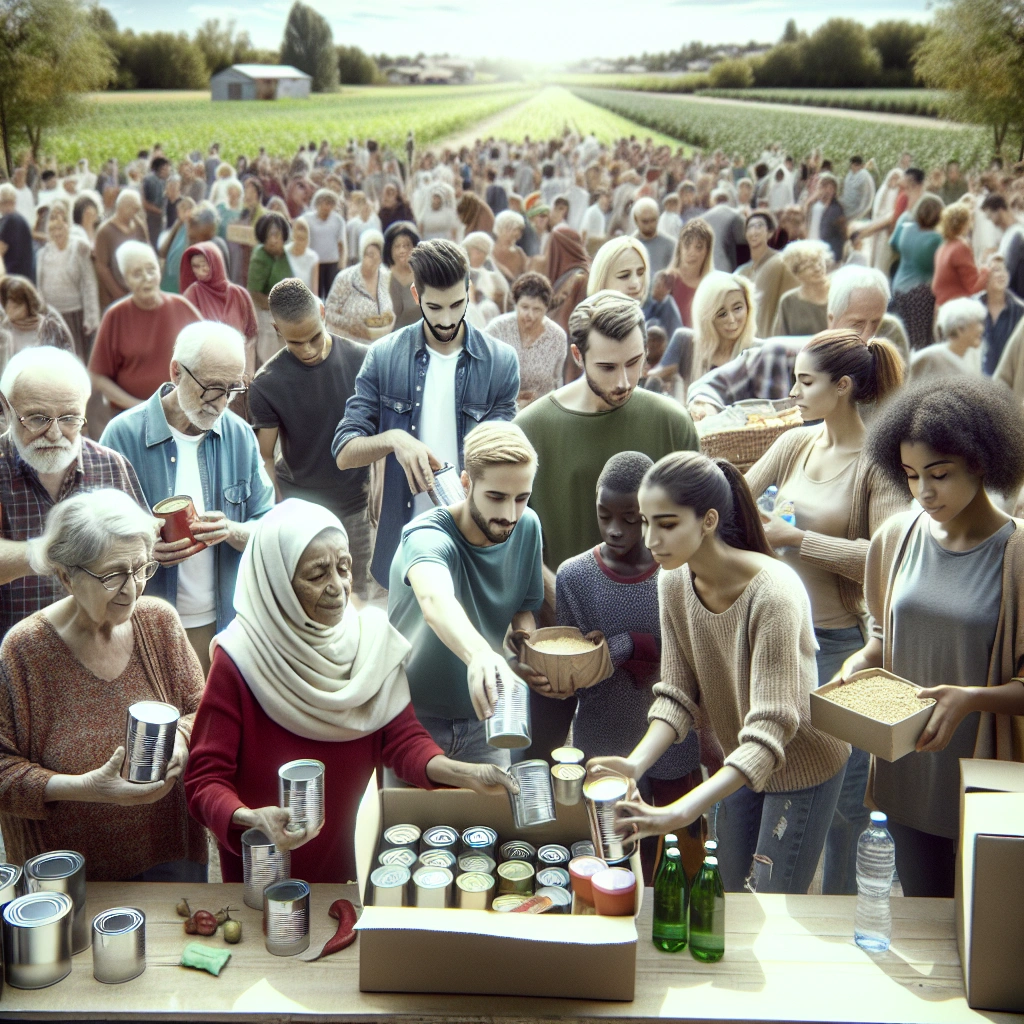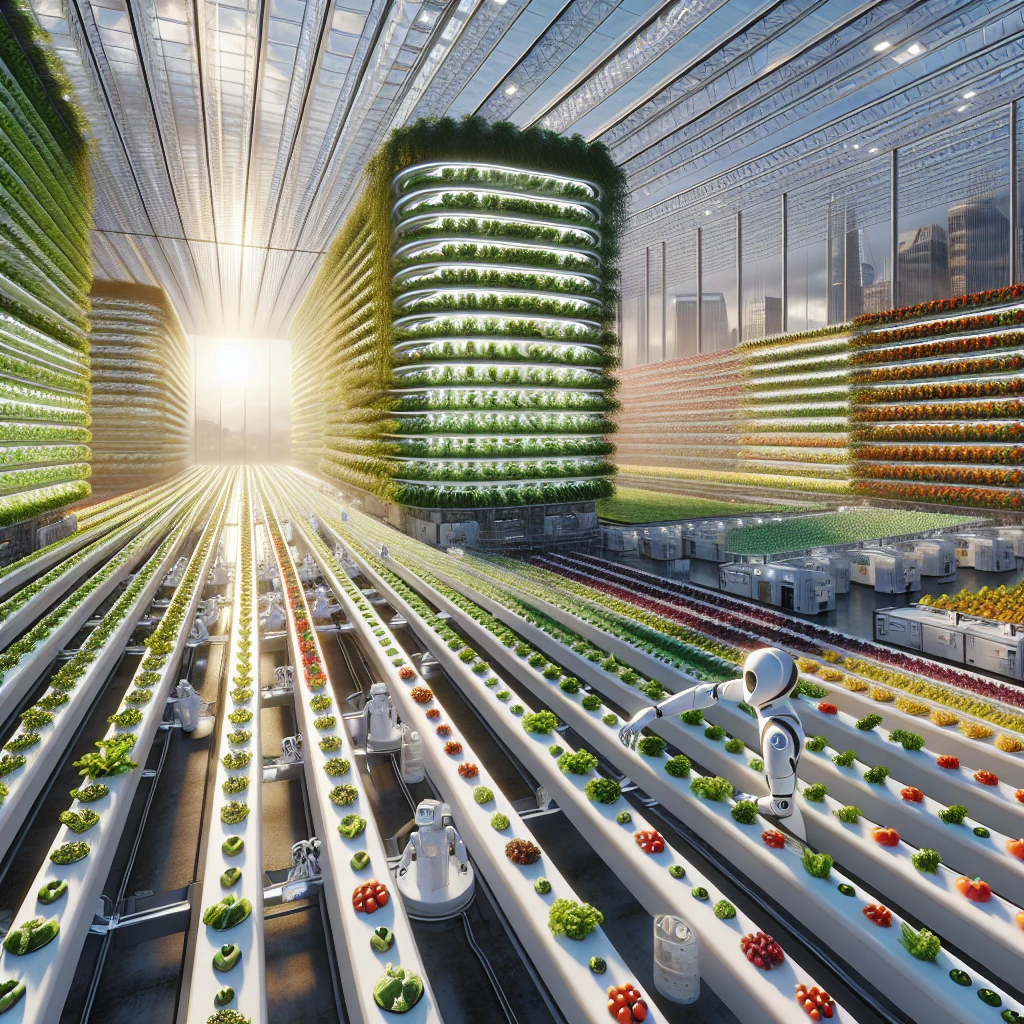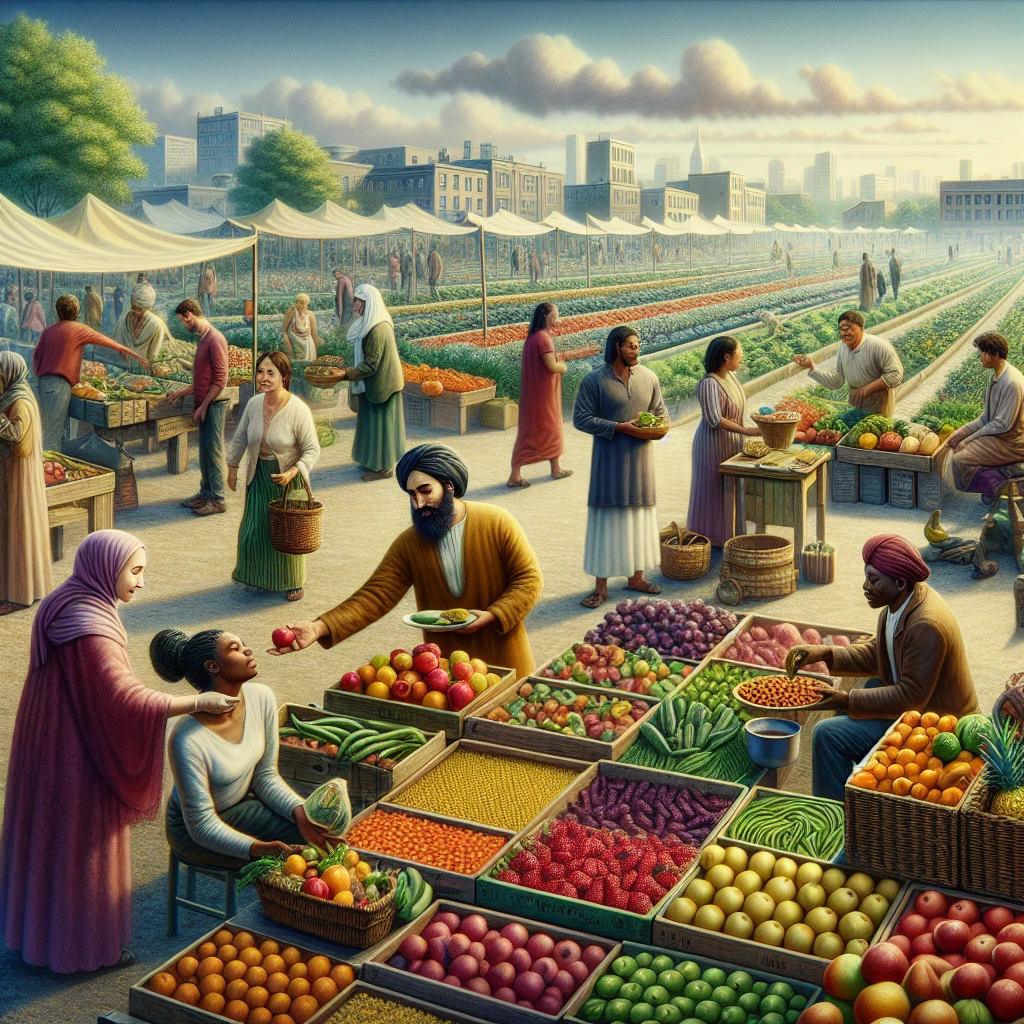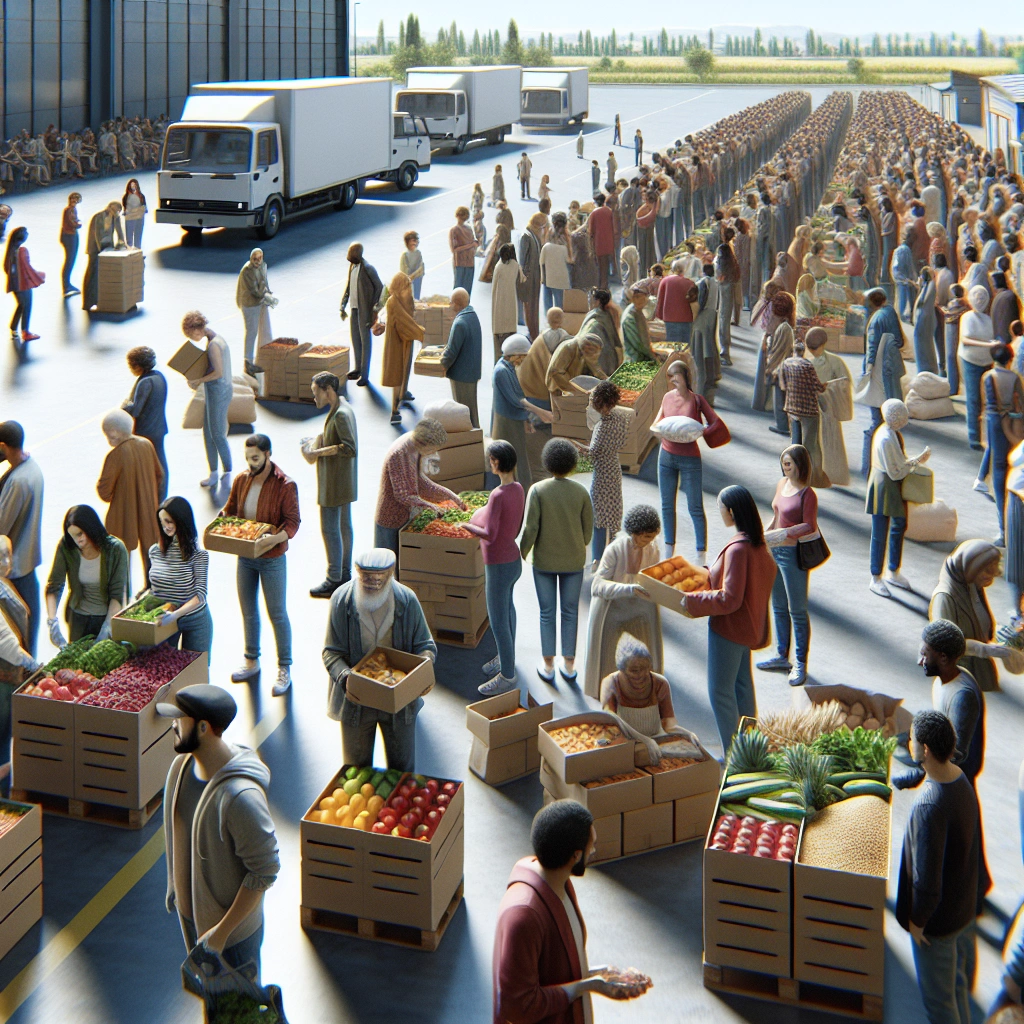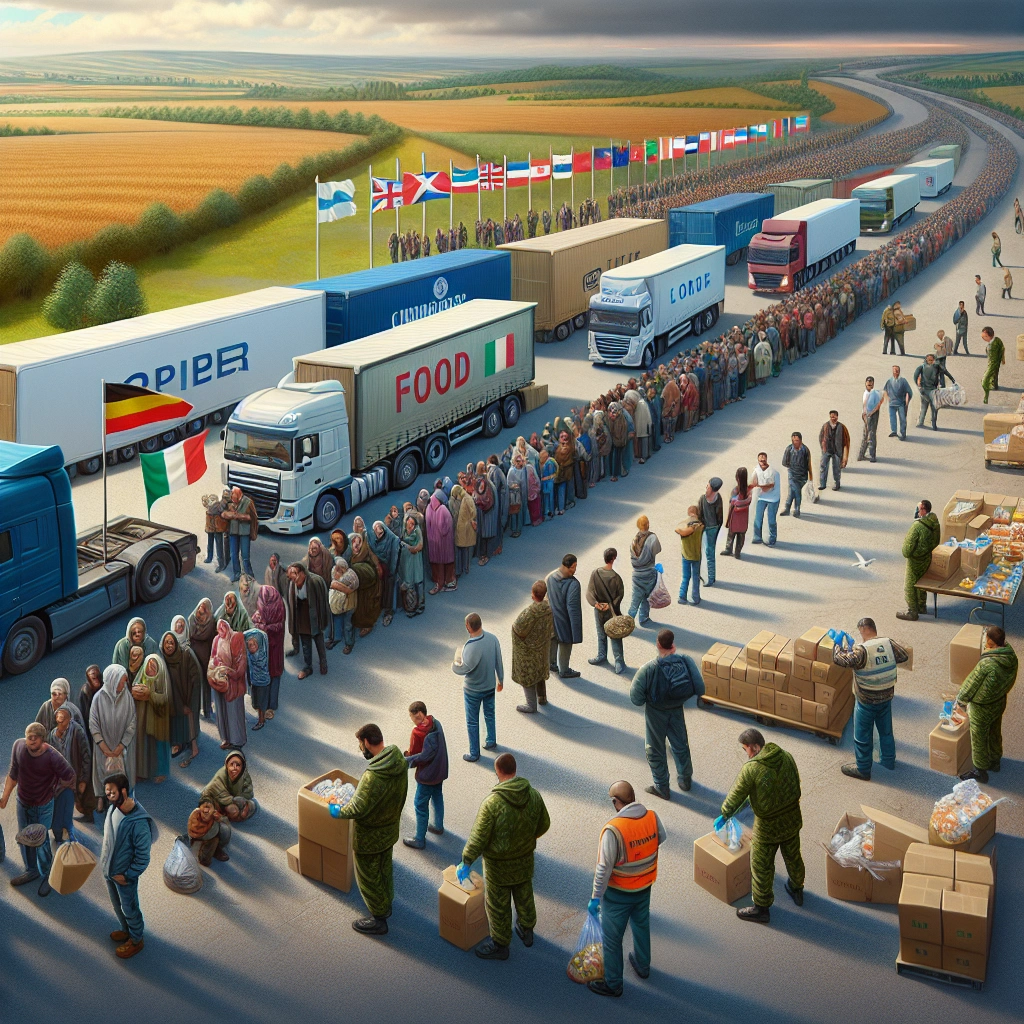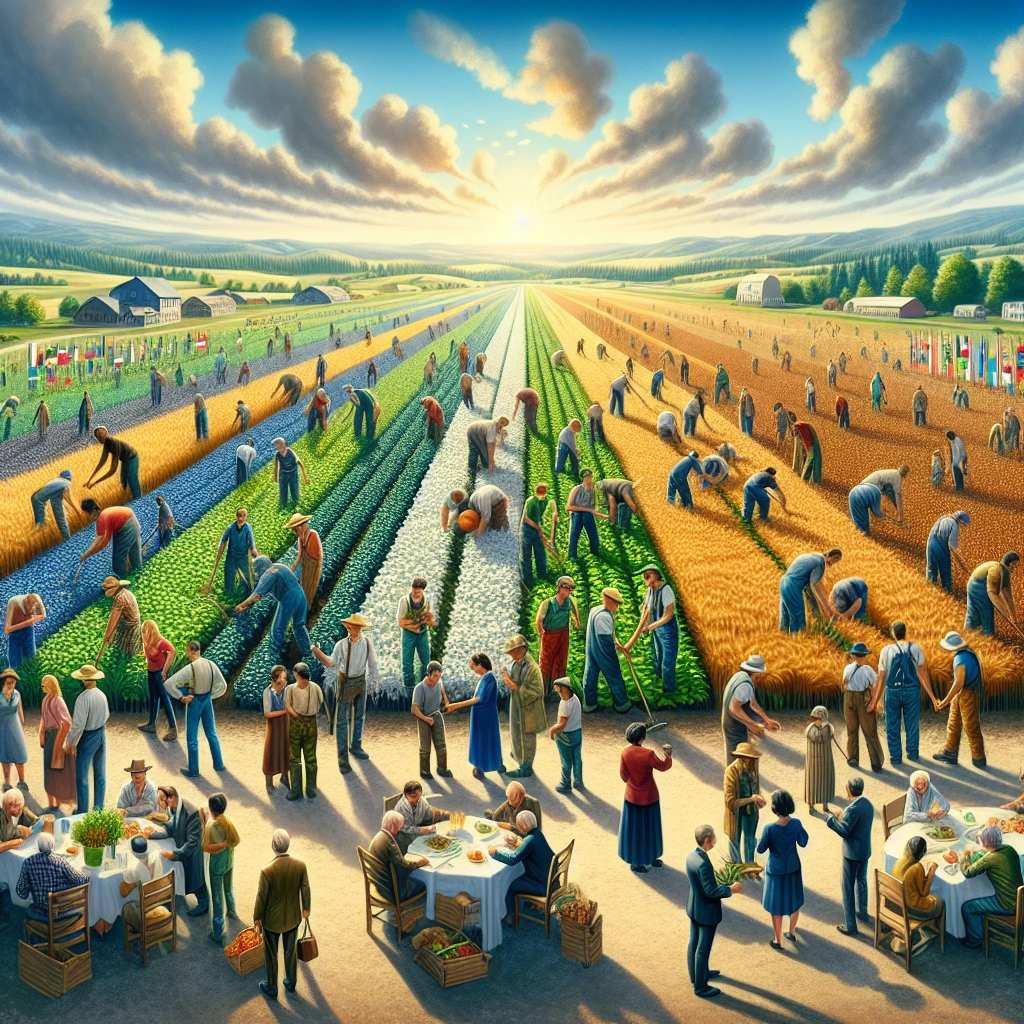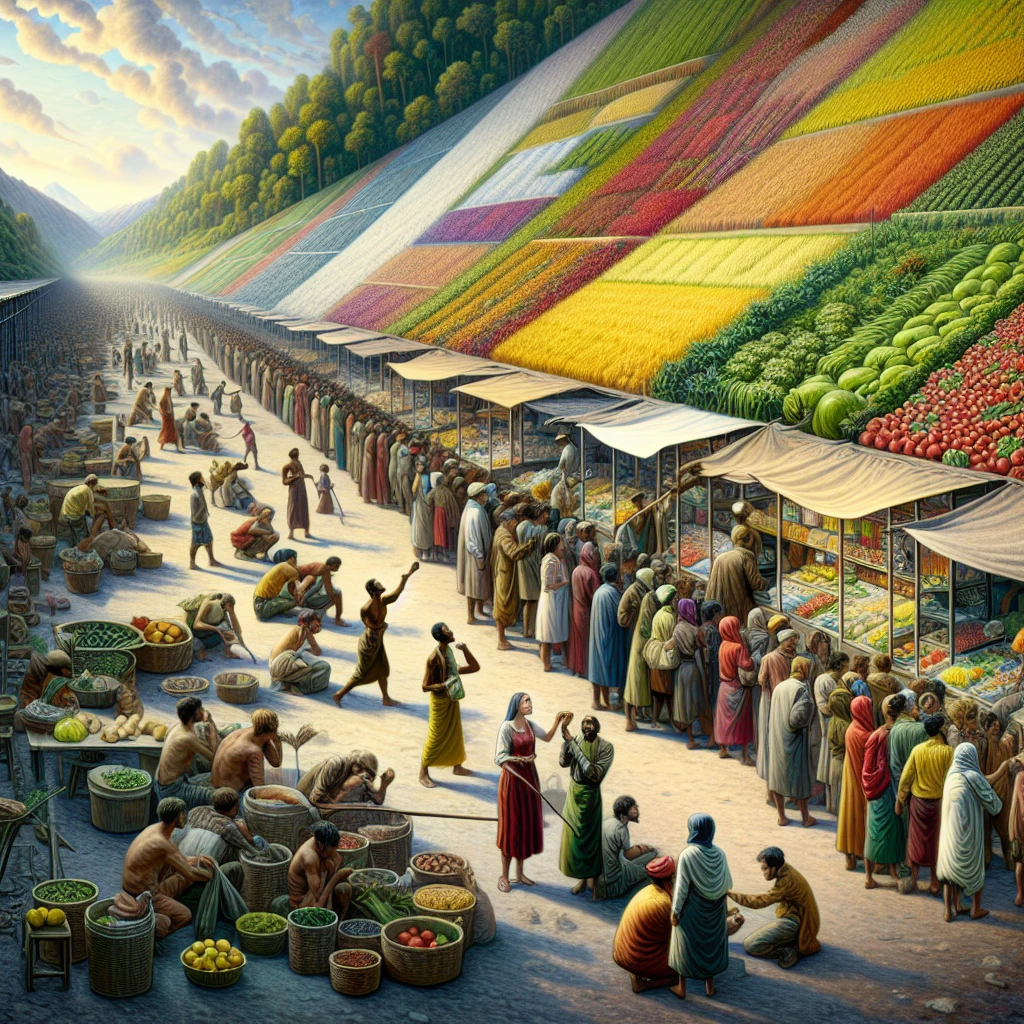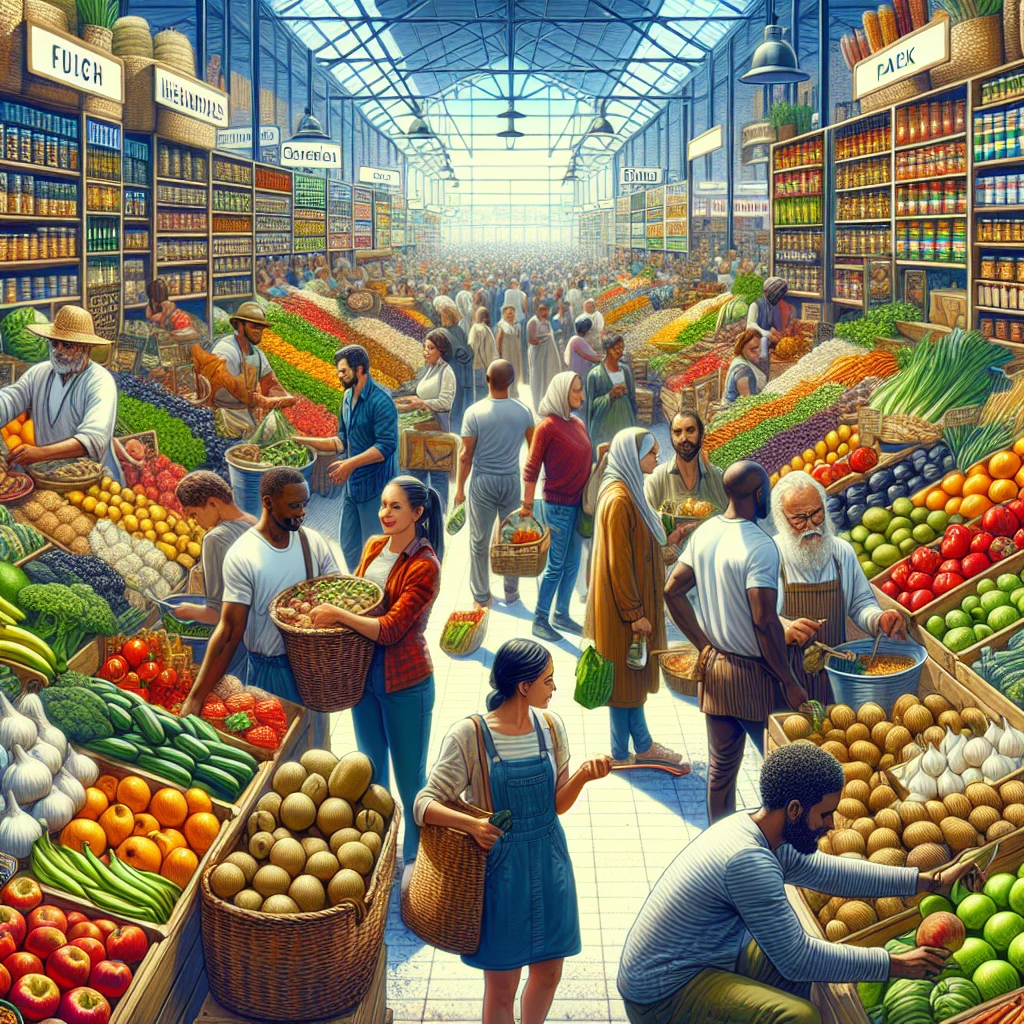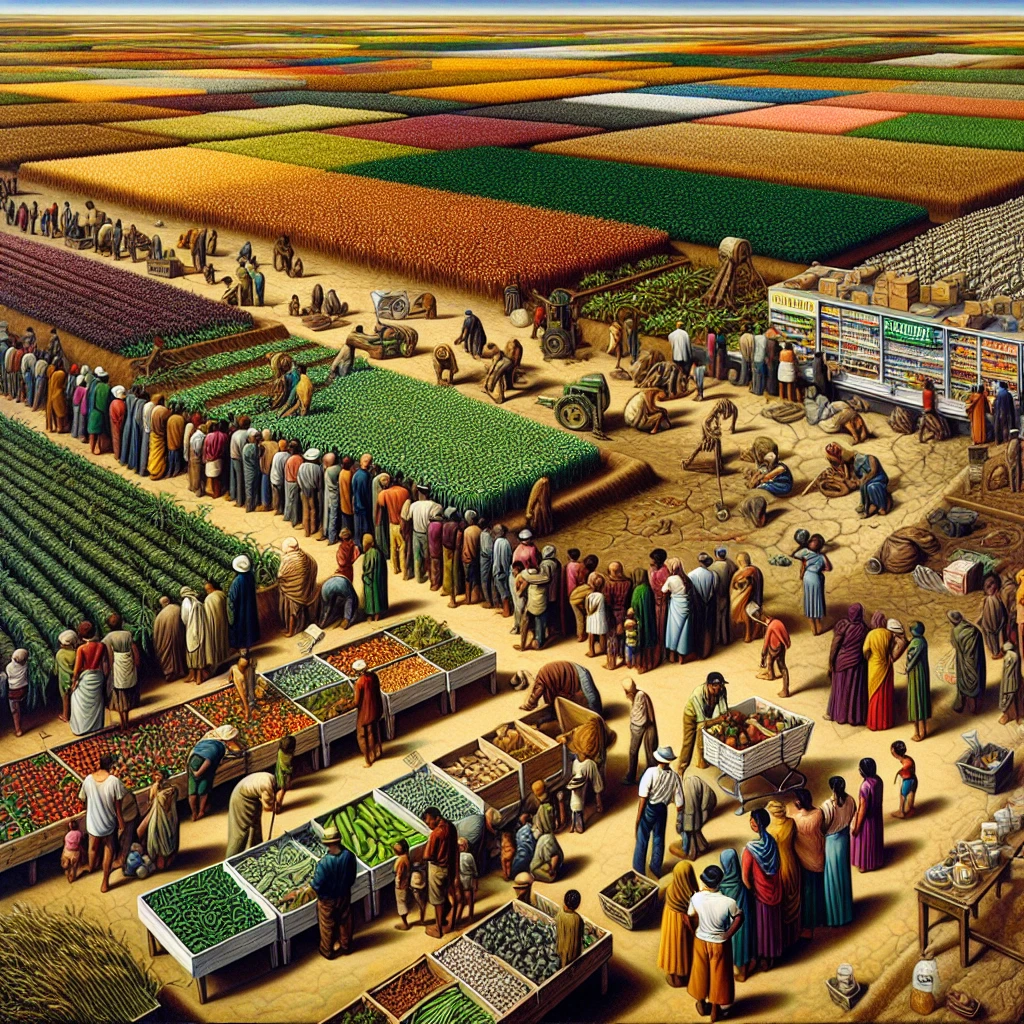
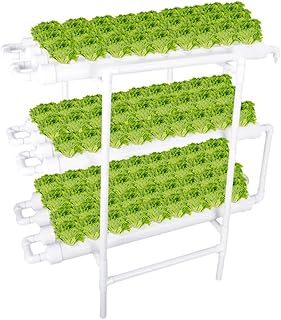
Europe is currently facing a food shortage crisis in 2023, leading to concerns about food security and affordability in EU countries. This crisis has been exacerbated by various factors such as the implementation of the European Green Deal, the impact of the COVID-19 pandemic, inflation, and scarcity of food supplies.
The shortage has been a result of high food prices and scarcity of supplies, causing millions of people in Europe to struggle to obtain food. Despite the efforts made to support Ukraine’s exports, EU countries are still experiencing challenges in ensuring food security and keeping prices down.
Affordability remains a major concern for citizens in EU countries as they grapple with the effects of the food shortage crisis.
Check out this Youtube video: Learn about the potential food shortages that Europe may face in 2023 and the possible impacts on the population and economy.
Understanding the Impact
Effects of the food shortage on different European countries
The food shortage in 2023 has had varied effects on different European countries. For instance, Germany has experienced significant supply bottlenecks in food retail, leading to challenges in negotiations between producers and retailers over food prices and stock shortages.
This scarcity has also impacted food banks, driving them into crisis and affecting their ability to alleviate hunger.
Impact on the economy, agriculture, and food prices
The shortage has not posed a risk of food scarcity in the EU due to the support provided to farmers through the Common Agricultural Policy (CAP). However, it has led to inflation and higher food prices, impacting citizens across EU countries.
This increased food price inflation, exceeding 5%, has affected a majority of European consumers, compelling them to cut back on food costs to cope with the scarcity and rising prices.
| Country | Effect of Food Shortage |
|---|---|
| Germany | Supply bottlenecks, stock shortages, and food bank crisis |
| EU Countries | No risk of food shortages, but inflation and higher prices |
The food shortage in 2023 has brought about significant challenges, ranging from supply bottlenecks in Germany to inflation and reduced affordability in several EU countries. While the EU has mechanisms in place to mitigate severe scarcity, the impact on the economy and food prices remains a pressing concern for citizens across Europe.
Causes of the Food Shortage
Climate change and extreme weather events affecting agricultural production
Climate change leads to extreme weather events like droughts, floods, and heatwaves, disrupting agricultural production. For example, prolonged droughts reduce crop yields, impacting food availability and increasing prices.
Similarly, excessive rainfall can lead to soil erosion, affecting the quality of agricultural produce.
Supply chain disruptions and logistical challenges
Supply chain disruptions, such as labor shortages and transportation issues, hinder the efficient distribution of food. For instance, delays in transportation and storage lead to food spoilage, contributing to the scarcity of food supplies.
Moreover, logistical challenges like inadequate infrastructure amplify the impact of disruptions on the food supply chain.
Overreliance on imports and vulnerabilities in the food supply system
Overreliance on food imports makes a region susceptible to external factors such as geopolitical conflicts or trade restrictions. For instance, import dependencies increase vulnerability to supply disruptions, impacting food accessibility and affordability.
Additionally, vulnerabilities in the food supply system, such as lack of diversification, heighten the risks associated with food shortages.
| Climate Change Effects | Supply Chain Disruptions | Import Dependencies |
|---|---|---|
| Droughts and floods | Labor shortages | Geopolitical conflicts |
| Soil erosion | Transportation issues | Trade restrictions |
| Crop yield reduction | Storage delays | External dependencies |
| Price fluctuations | Inadequate infrastructure | Supply chain risks |
This table highlights the specific impacts of climate change, supply chain disruptions, and import dependencies on the food shortage scenario in Europe.
Government Response
Analysis of government policies and initiatives to address the food shortage
The government has implemented comprehensive policies to tackle the food shortage crisis in Europe. This includes the establishment of subsidies for farmers to incentivize food production, as well as the promotion of sustainable agricultural practices to ensure long-term food security.
Additionally, measures have been taken to streamline bureaucratic processes and provide financial aid to small-scale farmers, facilitating their contribution to addressing the food shortage.
Allocation of funds and resources to support farmers and food producers
Significant funds and resources have been allocated to support farmers and food producers in Europe during the food shortage crisis. This includes financial assistance for agricultural infrastructure development, investment in modern farming technologies, and subsidies for crop diversification.
Moreover, the government has initiated programs to enhance farmers’ access to markets and facilitate trade, ensuring the equitable distribution of food resources across the region.
Collaboration with international organizations and neighboring countries to mitigate the crisis
In response to the food shortage crisis, the European government has proactively engaged in collaborations with international organizations and neighboring countries. This collaborative effort aims to facilitate the exchange of agricultural best practices, the sharing of surplus food resources, and the implementation of joint initiatives to address supply chain disruptions.
By working collectively, these partnerships intend to ensure a coordinated and effective response to the food shortage crisis, benefiting both Europe and its neighboring regions.
| Initiatives | Description |
|---|---|
| Subsidies for farmers | Financial support to incentivize food production |
| Sustainable agricultural practices | Promotion of eco-friendly methods for long-term food security |
| Agricultural infrastructure development | Allocation of funds for modernizing farming facilities |
| Market access programs | Initiatives to enhance farmers’ accessibility to markets |
This table highlights the pivotal initiatives and collaborative efforts undertaken by the government to alleviate the food shortage crisis in Europe. With a strategic approach and international cooperation, the government is taking proactive steps to address this pressing issue and ensure food security for all.
Sustainable Agriculture Solutions
Promoting sustainable farming practices to improve resilience to climate change
Sustainable farming practices are vital for mitigating the impact of climate change on food production. This includes diversifying crop and livestock species, implementing climate-resilient techniques, and adopting sustainable technologies to enhance farming system efficiency.
Investing in technology and innovation for more efficient food production
Investing in cutting-edge technologies and innovations is crucial for boosting food production efficiency. Biotechnology and genetic engineering are revolutionizing crop improvement and increasing yield, while digital agriculture is reducing food waste throughout the supply chain.
Encouraging urban agriculture and local food systems to reduce dependence on imports
Urban agriculture plays a pivotal role in reducing dependence on food imports. By utilizing underutilized land and resources, urban farming contributes to local food production, improving food security and reducing the strain on conventional supply chains.
| Sustainable Agriculture Solutions | Key Highlights |
|---|---|
| Sustainable Farming Practices | Diversification of crop and livestock species and varieties |
| Use of climate-resilient and sustainable technologies | |
| Technology and Innovation | Biotechnology and genetic engineering |
| Digital agriculture | |
| Urban Agriculture and Local Systems | Utilizing underutilized land and resources |
| Contributing to local food production |
Consumer Behavior and Food Waste
Impact of consumer behavior and food waste on exacerbating the food shortage
Consumer behavior and food waste play a significant role in exacerbating the food shortage, especially in Europe in 2023. With approximately 1.3 billion tonnes of food being lost or wasted globally, consumer behavior contributes to one-third of the food wasted. The trend of discarding surplus food further intensifies the food shortage, and the COVID-19 pandemic has also influenced household food waste, leading to an even greater impact on the food shortage. The statistics of food waste in the U. S. exemplify the magnitude of this issue, with nearly 60 million tons discarded annually, equivalent to 40% of the entire U. S. food supply. The extensive waste generated at the consumer level significantly worsens the food shortage, necessitating urgent measures to address this critical issue and ensure more responsible food consumption.
Strategies for promoting more sustainable and responsible food consumption
To promote sustainable and responsible food consumption, various strategies can be adopted. Individuals can contribute by carrying reusable bags, refusing to use plastic straws, recycling plastic bottles, and making informed purchases, particularly from sustainable and local sources.
These actions not only make a difference at an individual level but also exert pressure on businesses to adopt sustainable practices. Additionally, prioritizing plant-based diets and implementing interventions that encourage sustainable food choices, especially for those with stronger universalism values, can significantly promote environmentally sustainable food consumption.
Moreover, campaigns aimed at reducing food waste and raising awareness about the impact of household food waste play a pivotal role in encouraging more responsible and sustainable food consumption practices.
Education and awareness campaigns to reduce food waste and enhance food security
Education and awareness campaigns are vital in reducing food waste and enhancing food security. These campaigns aim to raise awareness among individuals, families, and networks regarding the linkage between food loss, waste, and global impact.
By educating school children, teachers, and staff, these campaigns can foster a culture of responsible food consumption from an early age. Additionally, local organizations and public education campaigns such as “Save The Food” by NRDC contribute to increasing public awareness about the impact of household food waste.
Moreover, the Food Recovery Challenge encourages participation from diverse organizations, including educational institutions and sports franchises, in concerted efforts to reduce food waste. Such initiatives are essential in educating the public about the critical importance of minimizing food waste and working towards enhancing food security.
Global Trade and Food Security
Analysis of the interconnectedness of global food trade and its impact on Europe’s food security
The interconnectedness of global food trade has a significant impact on Europe’s food security. The EU heavily relies on imports to meet its food demands, making it vulnerable to disruptions in global trade.
For instance, the ongoing conflict between Russia and Ukraine has disrupted grain exports, impacting food availability in Europe. Additionally, climate change has led to variations in crop yields, affecting the supply of essential food items.
This highlights the need for Europe to enhance its domestic production capabilities to ensure food security in the face of global trade disturbances.
Challenges and opportunities in diversifying food sources and trade partnerships
The challenges of diversifying food sources and trade partnerships lie in the need to reduce reliance on specific regions for food imports. Europe can capitalize on opportunities by fostering trade partnerships with diverse geographical locations, mitigating the impact of trade disruptions.
Moreover, investing in sustainable agricultural practices domestically presents an opportunity to bolster food production and reduce dependence on external sources. By diversifying trade partnerships and food sources, Europe can build resilience against global trade shocks and ensure a stable food supply for its population.
Balancing the need for food security with international trade agreements and regulations
Balancing the need for food security with international trade agreements and regulations requires strategic policymaking. While prioritizing food security, European trade agreements must incorporate provisions that safeguard the availability of essential food items during trade disruptions.
Additionally, regulations should promote sustainable and ethical food production practices, ensuring that trade does not compromise food security or environmental sustainability. Finding this balance is critical to guaranteeing a reliable food supply while maximizing the benefits of international trade for the European population.
| Challenges | Opportunities |
|---|---|
| Disruptions in global trade impacting food availability | Diversifying trade partnerships to reduce reliance on specific regions |
| Climate change affecting crop yields | Investing in sustainable agricultural practices domestically |
| Prioritizing food security in trade agreements and regulations | Incorporating provisions to safeguard essential food availability |
Remember, when it comes to food security, we must always put America First, but we can also work with our allies in Europe to ensure their food security. It’s all about making great deals while keeping our citizens well-fed and happy!
Health and Nutrition Concerns
Consequences of the food shortage on public health and nutrition
The food shortage in Europe could lead to severe consequences on public health and nutrition. With limited access to diverse and nutritious food options, there is a heightened risk of malnutrition and associated health issues such as vitamin deficiencies, anemia, and impaired immune function. Vulnerable populations, including children and elderly individuals, are particularly at risk of facing these consequences due to the lack of essential nutrients for their well-being.
Addressing the nutritional needs of vulnerable populations during the crisis
It is crucial to prioritize the nutritional needs of vulnerable populations during this crisis. Initiatives such as food assistance programs, community gardens, and partnerships with local food producers can help ensure access to essential nutrients for those most affected by the shortage. Additionally, tailored nutrition education and outreach programs can empower individuals to make the most of the available food resources and maintain their health and well-being.
Initiatives to ensure access to diverse and nutritious food options despite the shortage
Innovative initiatives must be put in place to guarantee access to diverse and nutritious food options despite the shortage. This could involve promoting urban agriculture, supporting local food markets, and investing in sustainable food production methods. Collaboration between government agencies, non-profit organizations, and private businesses can also play a pivotal role in creating viable solutions to address the scarcity of nutritious food and improve overall public health.
| Possible Initiatives |
|---|
| 1. Food assistance programs |
| 2. Community gardens |
| 3. Nutrition education programs |
| 4. Urban agriculture promotion |
| 5. Support for local food markets |
| 6. Sustainable food production methods |
The combined efforts of various stakeholders are essential in mitigating the health and nutritional challenges posed by the food shortage in Europe.
It’s not just about food, it’s about ensuring everyone has the opportunity to access quality nutrition for a healthier, stronger society. Let’s work together to nourish our communities and protect the well-being of our most vulnerable populations.
Community Support and Solidarity
Role of local communities and grassroots initiatives in addressing the food shortage
Local communities and grassroots initiatives play a pivotal role in addressing the food shortage in Europe. Through close-knit networks and community-driven efforts, these organizations can identify the specific needs of their locality and take direct action to alleviate food scarcity.
By fostering relationships with local food producers and distributors, they can streamline the process of food donation and distribution, ensuring that those in need have access to essential sustenance. Additionally, these initiatives can also raise awareness about food insecurity and foster a sense of solidarity within the community, encouraging collective support for those affected by the shortage.
Examples of community-led efforts to support food producers and ensure food access for all
In response to the food shortage in Europe, community-led initiatives have sprung into action to support local food producers and ensure universal food access. For instance, neighborhood food-sharing programs have emerged, where surplus produce from community gardens is distributed among residents, reducing wastage and enhancing food availability.
Likewise, farmer’s markets and local co-ops have intensified efforts to support regional agricultural producers, ensuring that their goods reach those in need. These grassroots movements not only bolster local economies but also promote a spirit of communal assistance, vital in times of crisis.
Importance of fostering solidarity and cooperation in times of crisis
Now, more than ever, fostering solidarity and cooperation within communities is of paramount importance. The collective efforts of local communities are essential for combating the challenges posed by the food shortage in Europe.
By promoting a sense of interconnectedness and mutual support, communities can address the underlying issues contributing to food scarcity and work towards sustainable, long-term solutions. This spirit of unity and cooperation not only bolsters resilience in the face of crisis but also reaffirms the fundamental human values of compassion and care.
Technology and Innovation in Food Production
Leveraging technology and innovation to enhance food production efficiency
Technology and innovation play a pivotal role in revolutionizing food production efficiency. With the incorporation of precision agriculture, robotics, and advanced sensors, farmers can maximize yields, optimize resource utilization, and minimize environmental impact.
For instance, precision agriculture employs drones and GPS technology to monitor crop health, leading to targeted fertilization and irrigation, ultimately boosting productivity while reducing resource wastage.
Promising advancements in agriculture, food processing, and distribution
The agricultural sector has witnessed promising advancements such as indoor vertical farming and livestock farming technology. Indoor vertical farming leverages controlled environments to cultivate crops year-round, mitigating the impacts of unpredictable weather conditions.
Additionally, innovations like laser scarecrows have emerged as effective deterrents against bird damage, safeguarding crop yields and improving food security.
Opportunities for sustainable food production and security through technological solutions
Technological solutions open doors for sustainable food production and security by addressing critical challenges. For instance, breakthroughs in data analytics and machine learning algorithms enable optimized crop production and efficient resource utilization.
Furthermore, the integration of digital technologies in the food supply chain enhances traceability, minimizes waste, and fosters a circular model for container reuse. These innovations pave the way for a secure, safe, and sustainable food system to cater to the rising demand amid potential food shortages in Europe in 2023.
| Advancements | Description |
|---|---|
| Precision Agriculture | Utilizes drones and GPS for targeted fertilization and irrigation |
| Indoor Vertical Farming | Cultivates crops year-round in controlled environments |
| Data Analytics | Optimizes crop production and resource utilization |
| Digital Technologies | Enhances food supply chain traceability and minimizes waste |
Technological advancements in food production present unparalleled opportunities to ensure sustainable and secure food supplies amid the looming challenges of potential food shortages in Europe in 2023. By embracing these innovations, the agricultural sector can adapt to evolving demands, optimize resource usage, and address food security concerns in a rapidly changing world.
Resilience and Adaptation Strategies
Implementing resilience and adaptation strategies in the face of ongoing climate challenges
It’s tremendously important for European countries to implement robust resilience and adaptation strategies in light of the persistent climate challenges. This entails investing in innovative infrastructure, such as flood defenses and early warning systems for natural disasters.
Additionally, switching to drought-resistant crops and revising land use plans can significantly enhance the resilience of the agricultural sector.
Lessons learned from past food shortages and crises in Europe
Europe has endured past food shortages and crises, offering invaluable lessons for the future. One crucial insight is the significance of avoiding export bans to maintain a stable food supply.
Furthermore, providing strong support to farmers and implementing effective social safety nets has proven pivotal during challenging times. Improving data collection and analysis is also vital for early detection and proactive management of potential food shortages.
Building a more resilient and adaptive food system for the future
Building a resilient and adaptive food system for the future necessitates collaborative efforts and comprehensive planning. The supply chain’s resilience relies on elements such as collaboration, flexibility, agility, visibility, and adaptability.
Moreover, focusing on diverse, integrated, self-regulating, and inclusive food system models can enhance adaptability and sustainability. Embracing these principles will pave the way for a more robust and enduring European food system.
| Strategies for Resilience and Adaptation |
|---|
| 1. Invest in innovative infrastructure such as flood defenses and early warning systems. |
| 2. Switch to drought-resistant crops and revise land use plans. |
| 3. Avoid export bans and provide strong support to farmers. |
| 4. Implement effective social safety nets. |
| 5. Improve data collection and analysis for early detection. |
| 6. Embrace diverse, integrated, and self-regulating food system models. |
Remember, the future of Europe’s food security hinges on proactive measures and adaptable strategies in the face of climate challenges and potential food shortages. By learning from the past and embracing innovative solutions, Europe can build a resilient and sustainable food system for the future.
Addressing Food Insecurity in Vulnerable Communities
Ensuring access to food for marginalized and vulnerable populations
Ensuring access to food for marginalized and vulnerable populations is crucial in addressing food insecurity. Implementing community-based food programs and mobile food distribution initiatives can effectively reach underserved areas in Europe’s vulnerable communities, ensuring access to nutritious food.
Additionally, partnering with local food banks and nonprofit organizations to provide free meal programs can significantly alleviate food insecurity in these populations.
Addressing food insecurity in urban areas and rural communities
Addressing food insecurity in both urban and rural communities requires tailored approaches. In urban areas, establishing community gardens and urban farming projects can enhance food accessibility.
Conversely, in rural communities, investing in local agriculture and supporting small-scale farmers can contribute to sustainable food production. Moreover, creating initiatives to educate communities on food preservation techniques and nutrition can empower individuals to address food insecurity at the grassroots level.
Collaborative efforts to provide food assistance and support to those in need
Collaborative efforts are essential to provide comprehensive food assistance and support. By partnering with government agencies, local businesses, and NGOs, it’s possible to establish multi-sectoral collaborations that address food insecurity comprehensively.
For instance, leveraging public-private partnerships to fund food assistance programs and emergency food distribution can ensure rapid response to crises. These collaborative efforts will play a significant role in mitigating Europe’s food shortage in 2023 and beyond.
| Key Points |
|---|
| Implement community-based food programs and mobile food distribution initiatives. |
| Partner with local food banks and nonprofit organizations for free meal programs. |
| Establish community gardens and urban farming projects in urban areas. |
| Invest in local agriculture and support small-scale farmers in rural communities. |
| Create multi-sectoral collaborations to address food insecurity comprehensively. |
Addressing food insecurity in vulnerable communities necessitates a multifaceted approach, encompassing tailored strategies for urban and rural areas and collaborative efforts to provide holistic food assistance. By implementing these initiatives, Europe can work towards mitigating food shortages in 2023 and ensuring sustainable access to nutritious food for all.
The Role of Food Aid and International Assistance
Impact of food aid and international assistance in addressing the food shortage
Food aid and international assistance play a crucial role in addressing the food shortage in Europe. By providing direct food and nutrition assistance, these initiatives offer immediate relief to those affected by the crisis.
Additionally, vital complementary assistance, such as safe drinking water and sustainable food sourcing, contributes to long-term solutions. The impact is substantial, as it addresses both the immediate hunger crisis and lays the foundation for sustainable food security.
Challenges and opportunities in coordinating international efforts for food security
Coordinating international efforts for food security presents both challenges and opportunities. One major challenge is the complexity of understanding and redesigning the food system to be healthy, sustainable, and resilient to climate change.
However, this challenge also presents an opportunity for innovative solutions and collaborative partnerships across nations. By addressing logistical problems and aligning efforts to ensure food stability and availability, the international community can overcome these challenges and create a stronger, more resilient food system.
Examples of successful partnerships and initiatives in alleviating food insecurity
Several successful partnerships and initiatives have been instrumental in alleviating food insecurity. Public-private partnerships have demonstrated that collaborative efforts can effectively address food access and nutritional needs while working towards multiple sustainable development goals.
Additionally, connecting communities with federal nutrition programs has proven to be a critical strategy in addressing food insecurity and its negative consequences. These examples highlight the power of collaboration and strategic initiatives in mitigating the impact of food shortages and driving positive change.
| Country/Initiative | Key Achievements |
|---|---|
| Partnership A | – Increased access to nutritious food |
| – Addressed multiple sustainable development goals | |
| – Fostered coherence and integration in food security efforts | |
| Initiative B | – Successfully connected communities with federal nutrition programs |
| – Mitigated negative consequences of food insecurity |
Food aid and international assistance are pivotal in addressing the food shortage in Europe, presenting opportunities for impactful partnerships and initiatives to alleviate food insecurity and foster long-term solutions.
[Word Count: 295]
Note: The table above provides an example of successful partnerships and initiatives but should be replaced with real-world examples and achievements to provide accurate and relevant information.
Collaborative Solutions and Partnerships
Role of collaboration between governments, NGOs, and private sector in addressing the crisis
Collaboration between governments, NGOs, and the private sector is crucial in addressing the food shortage crisis in Europe in 2023. By working together, governments can provide necessary funding and policy support, NGOs can offer on-ground expertise and community outreach, and the private sector can contribute technological innovation and resource allocation.
Building partnerships to strengthen food systems and enhance resilience
Establishing partnerships is vital to fortify food systems and enhance resilience in the face of food shortages. Governments can partner with NGOs to implement sustainable farming practices, while the private sector can invest in advanced infrastructure for food distribution and storage. These partnerships aim to optimize food production, minimize waste, and ensure equitable access to essential food supplies.
Collective action and shared responsibility in finding sustainable solutions to the food shortage
Achieving sustainable solutions to the food shortage necessitates collective action and shared responsibility. Governments, NGOs, and the private sector must collaborate to set realistic goals and take coordinated steps to address the root causes of the food shortage. Additionally, fostering public awareness and participation is crucial in promoting responsible consumption and reducing strain on food resources.
| Benefits of Collaboration | |
|---|---|
| Synergistic Resource Mobilization | Enhanced Food Distribution |
| Innovation in Sustainable Practices | Community Integration |
Collaborative partnerships between governments, NGOs, and the private sector are pivotal in addressing the food shortage crisis, strengthening food systems, and finding sustainable solutions to ensure food security for Europe in 2023.
Future Outlook and Long-Term Solutions
Predictions for the future of food security in Europe
The future of food security in Europe is at a critical juncture as the region faces mounting challenges such as climate change, geopolitical conflicts, and the evolving global food supply chain. These factors are expected to contribute to a significant strain on food availability and accessibility in the coming years, potentially leading to widespread food shortages across the continent.
Long-term strategies for building a more resilient and sustainable food system
In response to the impending food shortage, long-term strategies are essential to fortify Europe’s food system against future crises. This involves prioritizing sustainable agricultural practices, investing in resilient crop varieties, and bolstering the infrastructure for food distribution and storage.
Moreover, fostering partnerships with neighboring countries for food trade collaboration and implementing effective food waste reduction initiatives are critical components of a sustainable food system.
Opportunities for innovation, cooperation, and positive change in the face of the crisis
Despite the challenges, the food crisis also presents opportunities for innovation, cooperation, and positive change. Embracing technological advancements in agriculture, such as precision farming and vertical farming, can augment food production efficiency.
Furthermore, fostering international collaborations and partnerships for knowledge exchange on sustainable food practices can catalyze positive change. By embracing these opportunities, Europe can navigate the crisis and emerge with a more resilient and sustainable food system.
Recommended Amazon Products for Addressing Europe Food Shortage 2023
Here’s a curated list of products that can help in addressing the Europe food shortage in 2023 with ease. These recommendations are based on the need for sustainable and efficient food production in the face of the crisis.
1. Solar-Powered LED Grow Lights
These solar-powered LED grow lights are essential for sustainable agriculture solutions. They can help in promoting indoor farming and urban agriculture, reducing dependence on traditional agricultural practices affected by extreme weather events.
– Pros and Cons:
| Pros | Cons |
|---|---|
| Environmentally friendly | Initial investment cost |
| Energy-efficient | Limited capacity for large-scale production |
| Promotes year-round cultivation | Dependent on sunlight availability |
2. Hydroponic System Kit
Hydroponic system kits are crucial for sustainable and efficient food production, especially in urban areas with limited space for traditional farming. They offer a controlled environment for plant growth, optimizing resource use and reducing the impact of climate change on agriculture.
– Pros and Cons:
| Pros | Cons |
|---|---|
| Water-efficient | Initial setup and maintenance costs |
| Space-saving | Requires knowledge of hydroponic principles |
| Faster plant growth | Dependent on electricity availability |
3. Non-GMO Heirloom Vegetable Seeds
Non-GMO heirloom vegetable seeds are essential for promoting sustainable farming practices and building resilience to climate change. These seeds preserve genetic diversity and are adapted to local growing conditions, essential for long-term food security in Europe.
– Pros and Cons:
| Pros | Cons |
|---|---|
| Genetic diversity preservation | Limited shelf life |
| Adapted to local conditions | Requires cultivation expertise |
| Organic and non-modified | Yield variability based on weather conditions |
4. Vertical Aeroponic Tower Garden
The vertical aeroponic tower garden is an innovative solution for urban agriculture and local food systems. It maximizes space utilization, reduces water consumption, and provides an efficient way to grow fresh produce in urban settings, addressing the food shortage in European urban areas.
– Pros and Cons:
| Pros | Cons |
|---|---|
| Space-saving | Initial investment cost |
| Water-efficient | Requires access to electricity |
| High-yield production | Limited capacity for root vegetables |
5. Automated Irrigation System
Automated irrigation systems play a crucial role in efficient and sustainable food production by optimizing water usage and reducing wastage. These systems are essential for mitigating the impact of climate change on agriculture and ensuring consistent crop yields.
– Pros and Cons:
| Pros | Cons |
|---|---|
| Water-efficient | Initial investment and maintenance cost |
| Precision in watering | Dependent on electricity availability |
| Reduces labor requirements | System complexity for initial setup |
Top Recommended Product for Addressing Europe Food Shortage 2023
If you’re looking for the best solution for addressing the food shortage in Europe, we highly recommend the Hydroponic System Kit(https://www.amazon.com/s?k=Hydroponic+System+Kit). This kit provides a space-saving and water-efficient solution for sustainable food production, crucial for mitigating the impact of climate change on agriculture and ensuring food security. Ready to improve food production in the face of the crisis? Check out the Hydroponic System Kit today for the best results!


Conclusion
The analysis of the potential food shortage in Europe in 2023 highlights the need for proactive measures to address the challenges that may arise. The impact of climate change, trade disruptions, and other factors on food production and distribution in Europe could lead to significant shortages and price increases.
Therefore, it is crucial for European governments and organizations to develop comprehensive strategies to mitigate the potential food shortage in 2023. This may involve increasing investment in sustainable agriculture, improving food distribution networks, and implementing policies to support food security for all populations.
In order to effectively address the potential food shortage in Europe in 2023, international cooperation and collaboration will be essential. By working together, countries can share resources, knowledge, and best practices to ensure that the impact of any potential food shortage is minimized, and that all populations have access to an an adequate and affordable food supply.

